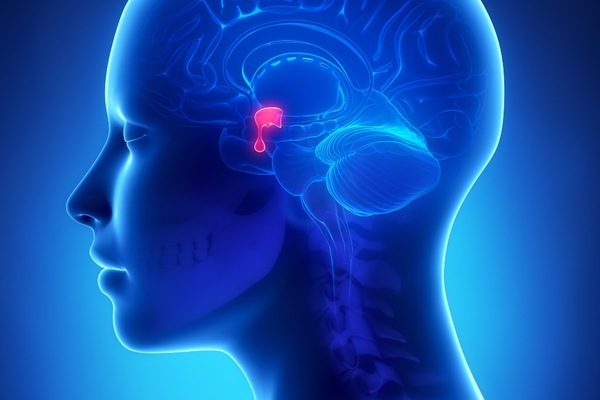
In medical school in the US, doctors must decide what type of medicine they wish to specialize in. Essentially, medical students pick an area they want to become an “expert” in and focus their studies and internships on that body part or system. And while having experts in various bodily systems can be beneficial, when specialists don’t communicate with one another well things can fall through the cracks. This often happens when the victim of a traumatic brain injury also sustains damage to their pituitary gland.
One reason that pituitary gland damage goes undetected is that neurologists and endocrinologists often do not work together effectively. Neurologists essentially treat brain and nervous system illnesses. Endocrinologists focus on treating illnesses associated with the endocrine or hormonal system in the body. And although these two bodily systems are inextricably intertwined, “specialists” are often so focused on one or the other that they may miss a thing or two.
One thing doctors often miss is pituitary gland dysfunction after a traumatic brain injury (TBI). Today, we will look at the common causes, signs, and symptoms of disruption of pituitary function. We will also discuss how your injury attorney can help connect the dots between doctors and get this potentially long-term dysfunction addressed properly.
What Is a Pituitary Gland Injury?
Whenever someone suffers from a head injury, there is a chance that the pituitary gland has been negatively impacted. The pituitary gland is a small gland that sits deep within your brain. It is located within a bony hollowed-out section of the bottom of the brain and is attached to the hypothalamus. The hypothalamus is a stalk-like structure that connects the pituitary to the brain and controls many of the gland’s functions. The hypothalamus is a network of neurons that largely controls and regulates the hormones that the pituitary gland secretes. So in a healthy adult, these two structures work together to regulate and control the hormones in our bodies. Because pituitary hormones control many of the organs and systems in the human body, doctors have referred to this gland as the body’s “master gland” for decades. The pituitary secretes things like:
- The growth hormone;
- Endorphins that make you feel great after exercise or physical exertion;
- Prolactin, which is associated with pregnancy and lactation;
- Adrenal hormones that regulate your stress responses, metabolism, blood pressure, and immune function; and
- Thyroid hormones that regulate many bodily functions like heart rate, metabolism, body temperature, and blood pressure.
As you can see, these hormones regulate most of your bodily functions. Therefore, a serious disruption to this gland can cause a whole host of physical and seemingly psychological disorders.
Common Symptoms of Pituitary Gland Injury
The pituitary gland is nestled within the depths of the brain. Therefore, it is largely protected and not subject to much direct injury. However, the hypothalamus is a fragile structure. It is prone to being twisted, stretched, or torn if there is impact to the brain. And since the hypothalamus is really the stalk of the pituitary gland, injury to it means dysfunction in the pituitary gland. Injury to the hypothalamus can restrict blood flow to the pituitary. Restricted blood flow means that the master gland is no longer capable of making the hormones your body needs to function properly. Symptoms of pituitary dysfunction include, but are not limited to:
- Fatigue or a general sense of decreased energy,
- Headaches,
- Difficulty concentrating,
- Low blood pressure,
- Unexplained weight fluctuations,
- Short-term memory loss,
- Depression and anxiety,
- Nausea and vomiting,
- Constipation,
- Sensitivity to cold,
- Sleep issues,
- Muscle aches and weakness, and
- Reproductive issues, infertility, and decreased sex drive.
Symptoms can arise suddenly and dramatically or gradually build up over time. And because doctors can attribute these symptoms to many maladies, pituitary gland issues often go undiagnosed.
Common Causes of Pituitary Gland Injury
Almost any injury or impact to the head can cause traumatic brain injuries that include damage to the pituitary gland. According to the Centers for Disease Control and Prevention (CDC):
- In 2017, unintentional slips and falls accounted for over 49% of all TBI hospitalizations; and
- Motor vehicle crashes accounted for almost 25% of all TBI-related hospitalizations.
Other less common causes include sports injuries, being struck in the head by an object, intentional self-harm, and assaults.
Why Is It Difficult to Diagnose Pituitary Damage?
Pituitary damage, even damage accompanied by severe symptoms, often goes undiagnosed. Part of the reason is that physicians can attribute the symptoms to many illnesses, including a larger and more readily identifiable TBI.
Quite often, when doctors check for TBIs, they run an MRI. But MRIs are not capable of detecting damage to the minuscule blood vessels in the hypothalamus. Nor can they assess how this unseen damage may be negatively impacting pituitary function. Essentially, if a doctor cannot see the physical damage, they often assume it does not exist.
In fact, doctors and insurance companies often accuse victims of pituitary damage of faking their illness and symptoms because the damage is not visible in typical TBI imaging tests. These patients complain of multiple symptoms that doctors usually associate with larger TBIs. But when the MRI shows no large structural damage to the brain, these doctors can erroneously conclude that there is no damage. They then conclude that the complaining patient is either imagining their symptoms or faking them. This can lead many patients to quietly suffer through years of debilitating illness without knowing why and without getting the help they need.
How Can My Attorney Help?
Working with an injury legal practitioner who is well-versed in pituitary gland injuries can go a very long way in bridging the gap. When an accident victim is suffering from inexplicable mood swings, debilitating fatigue, and a whole host of other symptoms but physically shows no sign of a TBI, a knowledgeable attorney can help your doctor fill in the blanks. When conventional imaging is not sensitive enough to pick up damage to the hypothalamus, your lawyer can suggest that your doctor run a blood test. If your blood test shows that you are low on growth hormone or any hormones associated with the pituitary, this is evidence of pituitary dysfunction. Your lawyer can then work with your doctor to develop a future treatment plan and get you the compensation you need to pay for that treatment.
We Can Help
The experienced injury lawyers at Brett McCandlis Brown & Connor, PLLC, are familiar with TBIs and their close cousin, pituitary gland injuries. We understand how such an injury can disrupt your entire life. We know how to help your doctor make the correct diagnosis and get the money you need to pay for your current and future medical bills. So don’t delay. Give us a call for a free consultation, or contact us online today.


